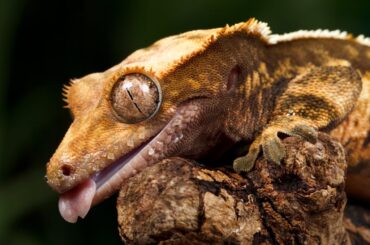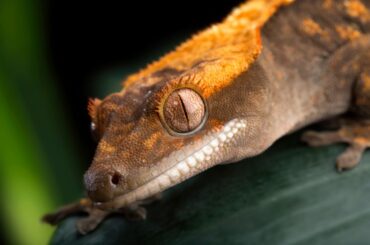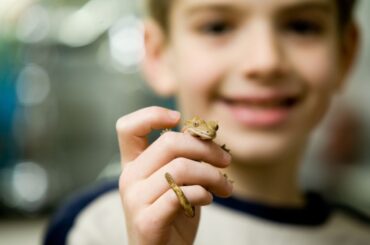Do you know how to tell if your leopard gecko is sick? Do you need to research leopard dying signs? Leopard geckos, fascinating pets known for their unique appearance and easy care, can sometimes get sick.
Spotting the early signs of illness in leopard geckos is very important. These little reptiles often hide their symptoms until they worsen, so we must pay close attention to their behavior and take action quickly.
How to Tell if Your Leopard Gecko is Dying
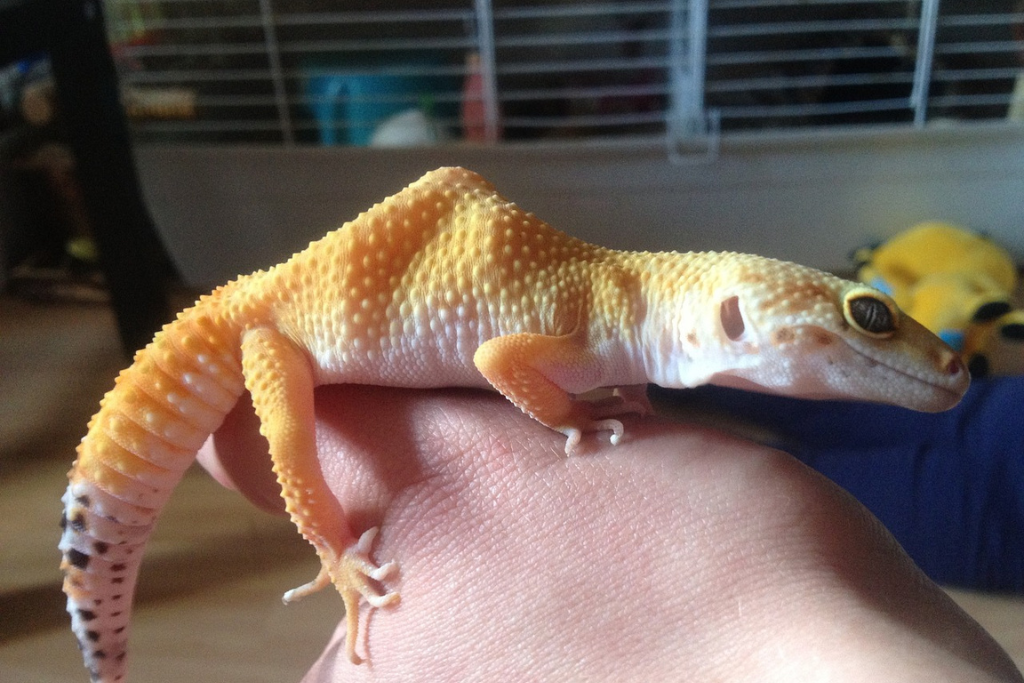
As a leopard gecko owner, it’s important to know the signs that show your gecko is in serious trouble. If you recognize these signs early, you can help your gecko and maybe even save its life.
Lack of Appetite and Anorexia
It’s worrisome if your gecko doesn’t want to eat because it might mean they have health issues. There are different reasons why geckos lose their appetite, like tummy blockages, bone problems, parasites, stress, or teeth problems. If your gecko refuses to eat or eats a lot less, watch them closely and ask a reptile vet why.
Rapid Weight Loss
Keeping an eye on your gecko’s weight is important for its health. A healthy gecko should stay the same weight or gain a little over time. If you see their tail getting thinner quickly, it could mean they are losing weight too fast.
Weight loss in geckos can happen because they’re not getting enough food with the right nutrients or their home isn’t right (like the wrong temperature or humidity). Infections, parasites, or other health issues can also cause weight loss. If you notice a big weight loss in your gecko, check their food and home and get help from a reptile vet if needed.
Lethargy and Behavioral Changes
Leopard geckos are usually active and have their own way of acting. But if your gecko becomes tired, acts differently, or doesn’t want to play as much, it could be a sign that something is wrong. Take these changes seriously and talk to a reptile vet to find out what’s happening and get the right help.
Abnormal Droppings
Checking your gecko’s droppings is important for their health. Normally, leopard gecko droppings are dark brown and solid. Seeing big changes in the color, texture, or how often they go to the bathroom could mean something is wrong.
Abnormal or missing droppings can happen because of tummy blockages, stomach issues, bacteria or parasites, or not drinking enough water. If you notice a prolonged problem with your gecko’s droppings, you must talk to a vet who knows about reptiles. They can check what’s causing the problem and give the right treatment.
When to Seek Veterinary Care
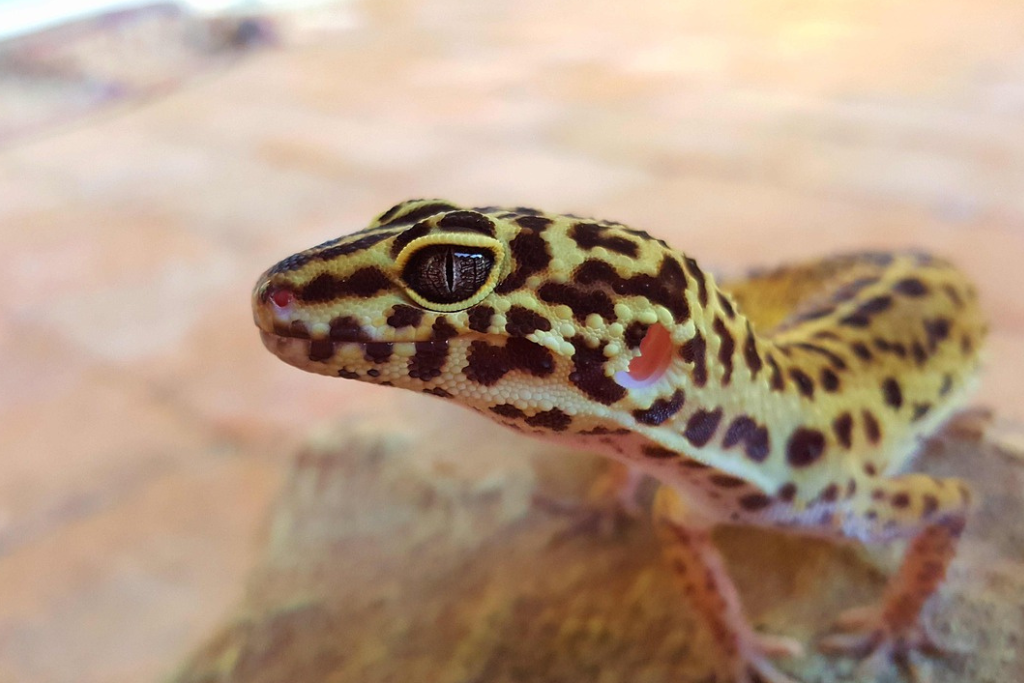
It’s crucial to seek help from a reptile veterinarian when it comes to keeping your leopard gecko healthy. Reptile veterinarians specialize in geckos and can diagnose the problem and provide appropriate treatment.
While minor issues can be addressed at home, there are times when you must visit the vet. If your gecko shows severe signs, like prolonged loss of appetite, rapid weight loss, extreme tiredness, difficulty breathing, cuts, or unusual behavior, it’s crucial to seek veterinary care immediately.
Taking quick action can prevent the situation from worsening and ensure your gecko’s recovery. Always be cautious and consult a vet for guidance when unsure about your gecko’s health.
Preventive Care and Maintenance
To keep your leopard gecko healthy, it’s important to take good care of it. Start by setting up its habitat properly, using suitable flooring and providing hiding places. Maintain a temperature gradient, with one side warm and the other side cooler.
Temperature and humidity levels are also vital. Leopard geckos need the right amount of heat and moisture to thrive. Regularly check and adjust these levels to ensure they are suitable.
Feeding your gecko a balanced diet is crucial. Offer live insects like crickets, mealworms, and Dubia roaches. Occasionally dust the insects with a special calcium and vitamin D3 powder to prevent bone problems.
It’s advisable to schedule regular check-ups with the vet. They will ensure everything is fine and provide advice on better gecko care. Regular vet visits help detect problems early and maintain your leopard gecko’s long-term health.
Conclusion
Leopard geckos need the best care possible if you want to be a responsible pet owner. You can ensure these fascinating reptiles are healthy by knowing the signs of sickness, getting them to a vet when needed, and ensuring they have a healthy environment and diet.
Observing their natural habits, like basking near a heat source or exploring their surroundings, helps us figure out what they need and make sure they are healthy and happy overall.
FAQs
What Should I Do If My Leopard Gecko Stops Eating?
If your leopard gecko stops eating, watch their behavior closely and talk to a reptile veterinarian if they have no appetite or show other worrisome symptoms.
How Can I Ensure the Proper Temperature and Humidity Conditions in My Gecko’s Enclosure?
To have the proper temperature and humidity in your gecko’s enclosure, set up different areas with different temperatures and spray a little water to keep the humidity around 40 to 50%.
How Often Should I Take My Leopard Gecko to the Veterinarian for Check-Ups?
It’s recommended to take your leopard gecko to the vet at least once a year for a thorough check-up, but you may need to go more often depending on your gecko’s specific needs and health.
What Should I Include in My Gecko’s Diet to Ensure They Receive Proper Nutrition?
A good diet for leopard geckos includes live insects like crickets, mealworms, and Dubia roaches. Make sure to give the insects healthy food and add calcium and vitamin D3 supplements.
What are Some Common Causes of Shedding Issues in Leopard Geckos?
Shedding issues in leopard geckos can happen when there isn’t enough moisture in the air, their skin gets dry, or they don’t drink enough water.
How Can I Create a Suitable Hiding Spot for My Leopard Gecko?
You can create a safe hiding spot for your gecko by using caves, half logs, or special hides made for reptiles. This gives them options to feel safe and reduce stress.
Can Leopard Geckos Regenerate Their Tails?
Yes, leopard geckos can grow back their tails. It’s a natural defense mechanism called autotomy.
How Can I Safely Clean and Maintain My Gecko’s Enclosure?
Clean your gecko’s enclosure regularly by removing waste, cleaning dirty areas, changing the bedding when needed, using reptile-safe cleaning products, and keeping everything clean to prevent harmful bacteria or parasites.
Can Leopard Geckos Live Together in the Same Enclosure?
No, leopard geckos are solitary animals and should be housed separately to prevent stress and potential aggression.
What Should I Do If My Gecko’s Tail Drops Off?
Keep the area clean and watch for signs of infection. The tail will regrow but may look different from the original. Ensure the enclosure is secure to prevent future tail drops.



